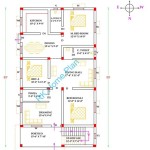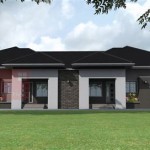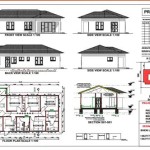Piling House Plans Coastal: Exploring the Essentials
Building a coastal piling home is an exciting endeavor, but it's crucial to plan carefully to ensure its longevity and resilience amidst the challenging coastal environment. When it comes to piling house plans, there are several key aspects that require meticulous attention.
1. Selecting the Right Piling Type
The type of piling you choose will significantly impact the stability and durability of your coastal home. Factors to consider include the nature of the soil, water depth, and expected loads. Coastal environments often favor treated timber piles, concrete piles, or steel piles.
2. Pile Installation and Foundation Design
Proper pile installation and foundation design are paramount for coastal piling homes. Piling is typically driven into the ground to create a stable base. The depth and spacing of the piles depend on the soil conditions and structural loads. Ensuring a solid connection between the piles and the house framing is also essential for structural integrity.
3. Elevation and Grade
In coastal areas, it's imperative to elevate the house above the expected flood levels. This can be achieved by extending the piles to the desired height and constructing the house on top of the elevated platform. Proper grading around the house is equally important to prevent water accumulation and seepage.
4. Wind Resistance and Storm Protection
Coastal homes face the threat of strong winds and hurricanes. Piling house plans should include provisions for wind resistance, such as hurricane straps and reinforced connections. Additionally, consider installing impact-resistant windows and doors to protect against flying debris.
5. Moisture Management
Controlling moisture is vital in coastal piling homes. Proper ventilation, vapor barriers, and drainage systems help prevent moisture accumulation, which can lead to rot and structural damage. Consider using moisture-resistant materials and incorporating passive design strategies to minimize moisture issues.
6. Coastal Building Codes and Regulations
Coastal areas often have specific building codes and regulations designed to address the unique challenges of the environment. These codes may stipulate requirements for pile depths, pile spacing, elevation, and wind resistance. Adhering to these regulations ensures compliance and enhances the safety of your coastal home.
7. Resilience and Longevity
The ultimate goal of any coastal piling home is to withstand the harsh conditions and provide a safe and comfortable living space for generations. Proper planning, adherence to building codes, and regular maintenance will contribute to the resilience and longevity of your coastal home.
In conclusion, piling house plans coastal require careful consideration of various factors, including pile type, installation, elevation, wind resistance, moisture management, building codes, and resilience. By understanding these essential aspects, you can create a coastal piling home that withstands the test of time and provides a serene and secure living environment.

Aaron S Beach House Coastal Plans From Home

Elevated Piling And Stilt House Plans Coastal Home Beach On Stilts Cottage Decor

A Place In The Sun Coastal House Plans From Home

Elevated Piling And Stilt House Plans Archives Beach Coastal Decor

Casual Informal And Relaxed Define Coastal House Plans

Addley Beach Coastal House Plans From Home

Piling House Plans White Wooden Metal Roof Wood Nice Dormers Traditional Entrance Chandelier Decorative Palm Of Дома на сваях Прибрежные дома Дом

Piling Pier Stilt Houses Hurricane Coastal Home Plans

Porches Cottage Standard Piling Foundation With Side Entrance Garage 3 Bedroom Version 2176 Sf Southern Cottages

Shelter Cottage Piling Foundation With Elevator 2466 Sf Southern Cottages








